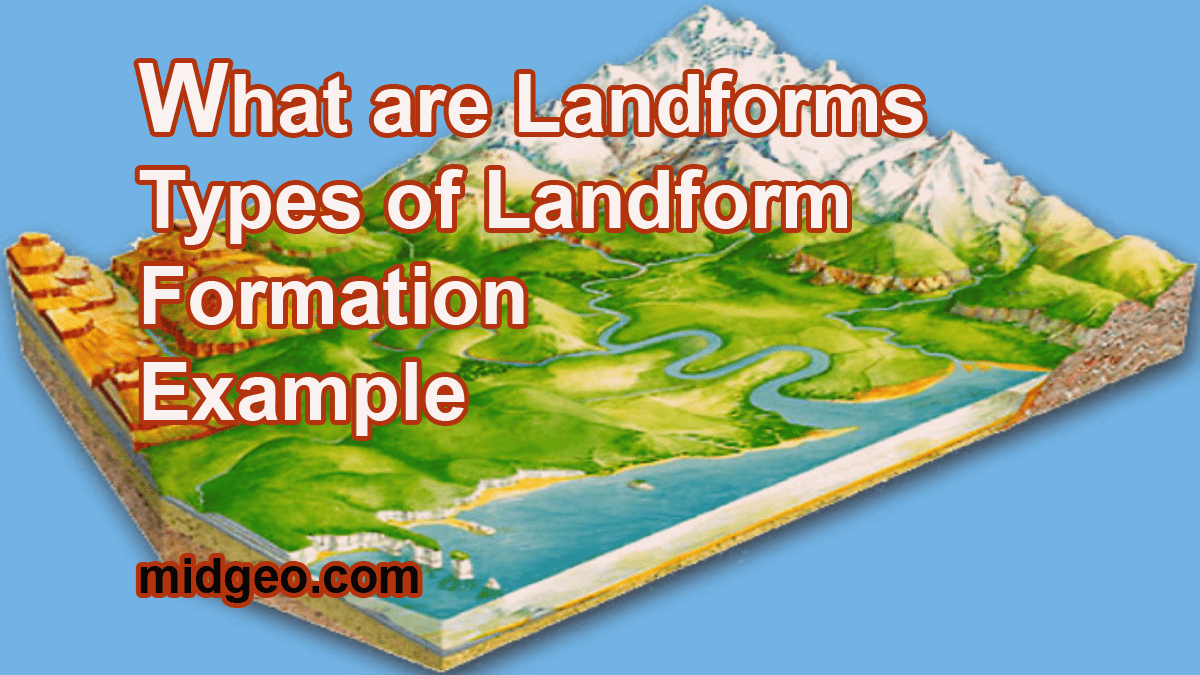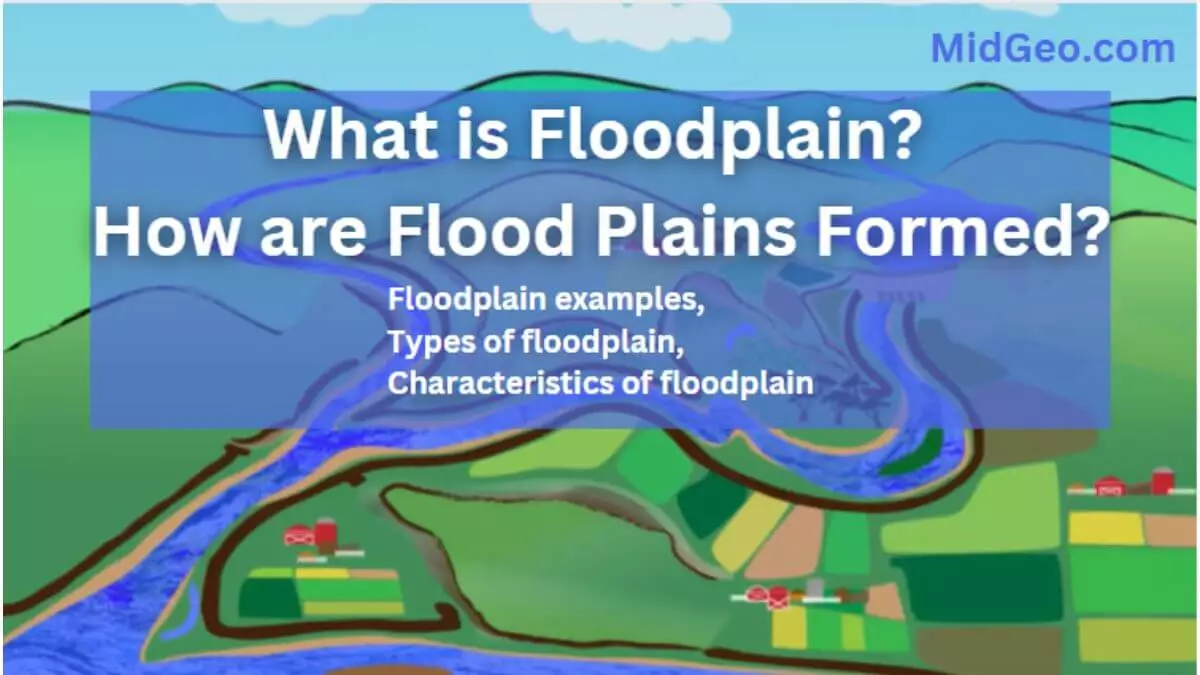10 Importance of Geography in the World: Why Studying Geography Matters for Individuals and Nations

The Importance of Geography in the World
Geography, often described as the “bridge between the natural and social sciences,” is one of the most important subjects in understanding our planet. It’s not just about memorizing maps or identifying countries — geography explains why the world works the way it does.
It explores the relationships between people, places, and environments. Whether it’s predicting natural disasters, managing resources, or planning cities, geography helps us make sense of our complex, interconnected world.
In this article, we’ll take an in-depth look at the 10 importance of geography in the world, including its role in education, human development, and national growth.
List 10 Importance of Geography In the World
1. Understanding Earth’s Physical Features
Geography helps us study the Earth’s natural features — mountains, plateaus, deserts, forests, oceans, and valleys. By learning about these, we gain insights into how they shape weather, biodiversity, and human activity.
For instance, mountain ranges influence rainfall patterns, while rivers support agriculture and settlements. Understanding these connections helps us live harmoniously with nature and make sustainable decisions for the future.
2. Grasping Climate and Weather Patterns
The study of geography allows us to understand global and local climate systems. Meteorologists rely on geographic data to predict weather conditions, storms, and droughts.
Moreover, geography helps us recognize long-term changes like global warming, rising sea levels, and shifting seasons. This knowledge empowers societies to prepare for natural disasters, manage agriculture effectively, and reduce climate-related risks.
3. Managing Resource Distribution
Resources such as water, oil, coal, and fertile land are unevenly distributed across the planet. Geography helps us identify where these resources exist and how they can be used efficiently and fairly.
For example, nations use geographic studies to determine mining zones, agricultural lands, or renewable energy sites. Understanding resource geography promotes international cooperation and reduces conflicts over limited supplies.
4. Supporting Environmental Conservation
Geography plays a major role in understanding the delicate balance of our ecosystems. It enables scientists to monitor environmental degradation, deforestation, and habitat loss.
By studying maps, satellite images, and human-environment interactions, geographers help policymakers create strategies for conservation — such as protecting rainforests, preserving wetlands, or combating desertification.
Environmental geography teaches us that every decision — from city planning to farming — impacts the Earth’s future.
5. Appreciating Cultural Diversity
Geography and culture are deeply connected. The environment influences people’s lifestyles, architecture, cuisine, and traditions. For instance, desert dwellers adapt differently than those in coastal or mountain regions.
Studying cultural geography fosters respect for diversity and helps us understand how geography shapes human identity. It also builds empathy and global awareness — essential values in an increasingly interconnected world.
6. Facilitating Trade and Globalization
The success of trade and globalization is rooted in geography. It determines the best trade routes, transportation systems, and port locations. Countries with strategic geographic positions, like Singapore or the Suez Canal Zone, play vital roles in international commerce.
Geography also helps businesses understand markets, supply chains, and the movement of goods. As globalization continues to grow, geographical literacy becomes essential for economic development and global cooperation.
7. Defining Political Boundaries and Geopolitics
Geography shapes political boundaries, which in turn influence diplomacy, governance, and international relations. It explains why certain borders exist and how geographic features — like rivers or mountains — become natural boundaries between nations.
In geopolitics, geography is a key factor in understanding global power dynamics. Control over important regions, such as the Arctic or the South China Sea, can determine a nation’s economic and strategic influence.
8. Strengthening Disaster Management and Risk Reduction
Geography provides vital tools for predicting, preparing for, and responding to natural disasters such as earthquakes, floods, hurricanes, and volcanic eruptions.
By studying hazard-prone areas and analyzing spatial data, geographers help save lives and minimize damage. Disaster mapping and GIS (Geographic Information Systems) are crucial in planning evacuations, rebuilding efforts, and creating resilient communities.
9. Guiding Urban Planning and Development
As the global population continues to urbanize, geography helps cities grow intelligently. Urban geography focuses on designing livable, sustainable spaces with efficient transportation, green areas, and housing solutions.
Geographers assist planners in addressing issues like overpopulation, pollution, and resource allocation. A city designed with geographic principles offers a higher quality of life and a smaller environmental footprint.
10. Enhancing Personal and Global Awareness
Lastly, geography enriches our personal worldview. It makes us aware of global issues — from climate change to migration and cultural exchange.
By studying geography, we learn to think critically about how our actions affect the planet. It transforms us into informed global citizens who value sustainability, peace, and cooperation among nations.

Importance of Geography in Education
- Interdisciplinary Bridge: Geography links history, science, economics, and social studies—making learning holistic.
- Spatial Thinking & Mapping Skills: Students develop skills to read maps, interpret data, and analyze spatial relationships.
- Real-World Relevance: Through geography, learners understand climate change, migration, resource conflict, and global issues—making learning current.
- Career Pathways: Geography opens doors to careers in environmental science, urban planning, GIS, climatology, geopolitics, and more.
Importance of Geography to Mankind and Nations
- Human Survival & Well-Being: Geography helps societies locate water, grow food, build resilient infrastructure, and mitigate natural hazards.
- Economic Strategy: Nations leverage geographic advantages (ports, resources, trade corridors) in their development strategies.
- Security & Diplomacy: In geopolitics, geographic knowledge informs defense, border policy, and international negotiations.
- Sustainable National Growth: Countries that align planning with geographic constraints tend to manage resources better, reduce environmental degradation, and improve resilience.
Frequently Asked Questions
Q: What are the five importance of geography?
A: While you can list many, here are five foundational ones:
- Understanding physical features
- Resource distribution
- Climate and weather
- Disaster risk management
- Cultural and political awareness
Q: Why is geography important for education?
A: It develops spatial reasoning, links multiple disciplines, and makes students aware of pressing global challenges (climate, population, migration, sustainability).
Q: What is the importance of geography to man?
A: It helps humans locate resources, avoid hazards, build livable cities, and interact wisely with natural systems.
Final Thoughts
Geography is far more than a school subject — it’s the foundation for understanding our world. From environmental conservation to cultural appreciation and global trade, geography influences every aspect of life.
It equips individuals and nations with the knowledge to make responsible decisions, address global challenges, and protect the planet for generations to come.
So, the next time you look at a map or study a climate pattern, remember — geography is the compass that guides humanity toward a sustainable and connected future.





